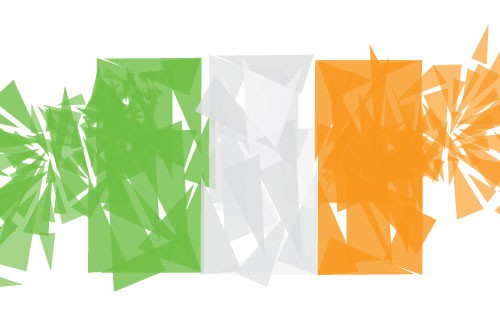
In Ireland, the introduction of reference pricing led to significant decreases in many branded products and is fast promoting the use of generic drugs. However, prices are still high compared to other countries, particularly the UK.
The Health (Pricing and Supply of Medical Goods) Act was passed by both houses of Ireland’s parliament (Oireachtas) to promote wider use of generics and help cut healthcare costs, under the terms set by the Troika (IMF, European Central Bank, and European Commission). Strict austerity measures continue, even as Ireland exited the bailout programme in December last year, as a result of an improvement in economic conditions. The cost of branded and generic medicines was singled out as being unacceptably high, despite the measures taken by the Government to reduce costs. EC director of economic and financial affairs Istvan Szekely, the Troika representative to Ireland, said that the cost of pharmaceutical drugs in Ireland could not be justified and was not sustainable.
The aim of the Irish government now is to bring prices of generics in line with European standards with the introduction of a phased reference pricing system (setting common reimbursement prices for a group of interchangeable medicines). In November last year the Ministry of Health announced reductions in prices for cholesterol-lowering atorvastatin, the first changes under the new legislation.
After cholesterol-lowering drugs, which represent the highest cost in the reimbursable category, came esomeprazole, for stomach conditions, and other drugs considered high priority for the management of chronic conditions.
Under the new system the Health Ministry sets a reference price for groups of interchangeable medicines published by the Irish Medicines Board (IMB), which is reviewing 20 active substances (around 1,500 medicines). When a product is added to the list, a consultation process starts with the marketing authorisation holder and then the Health Services Executive (HSE) will set prices.
Health Minister Dr James Reilly said: “This legislation will provide much greater access to generic medicines in Ireland and will reduce medicine costs for patients and the state.”
The government launched an information campaign aimed at healthcare professionals and patients to explain how the changes affect them. A survey by the IMB last year revealed that there was a high level of consumer awareness and acceptance of generic medicines. Its report found that 8 out of 10 respondents (82 per cent) would accept a generic medicine if offered it by their doctor or pharmacist, while nine out of ten consumers (92 per cent) who had personally used generic medicines said that they had a positive experience overall.
Do savings come from branded drugs?
Industry body the IPHA (Irish Pharmaceutical Healthcare Association) has not commented on the reference pricing system since its implementation, but it had expressed doubts regarding the “security of supply” when it was under discussion in 2012.
The IPHA made a supply agreement with the government that year leading to price reductions and claims that branded drugs delivered savings (over €68m) in the first six months of 2013. IPHA chief executive Anne Nolan said in November: “The prices of many well-known medicines supplied to the Irish health services will fall. These ongoing price cuts, coupled with a series of previous reductions, have resulted in the cost to the State per item reducing by nearly 30 per cent between 2008 and 2013. This has led to significant savings across all the community drug schemes in the region of €554m.”
Pharmaceuticals in Ireland are still amongst the most expensive in Europe at 50 per cent above the EU average and up to three times the UK price.
“Having responded to the State’s need to impose austerity measures over the past few years, the research-based pharmaceutical industry remains committed to playing a proactive role in delivering value for money to the health services, while at the same time ensuring that patients and their families in Ireland have access to the most cutting edge and innovative medicines,” she concluded.
IPHA commercial affairs director Orlaith Brennan reiterated: “Proper recognition needs to be given to these savings. Meanwhile, the new system of reference pricing and generic substitution should bring down the price of generics. Since the economic crisis enveloped this country necessitating the Troika bailout programme, IPHA companies have worked with the State to ensure that they played their part in implementing a reform programme. This is reflected in the very significant savings that have been delivered to the State.”
The IPHA commissioned an IMS study last year, which shows that the prices in Ireland are in line with the average of a basket of nine European countries (Austria, Belgium, Denmark, Finland, France, Germany, Netherlands, Spain and the UK). The report covers the 200 most frequently-prescribed patented medicines – which amount to over 99 per cent of the patented segment of the market.
However, the price of generics is significantly higher in Ireland than in all of the EU countries reviewed, and is in fact 50 per cent higher than the average price in the same basket of countries listed above, concluded the IMS study, which focused on ex-factory prices for brands and generics, excluding wholesaler or pharmacy mark-ups.
Currently, generics account for just 18 per cent of medicines dispensed throughout the country, compared with 80 per cent in the UK, according to the Irish Pharmacy Union. EFPIA figures from 2011 reveal that the market share of generics in value in the country was 12 per cent.
Will prices plummet in Ireland?
Meanwhile, generic drug prices in Ireland are forecast to plummet, after a new pharmacy opened in Dublin selling medicines at the price levels practised in Northern Ireland, or even lower, offering savings of 80 per cent.
Many patients travel to Northern Ireland to buy cheaper medicines. But the Healthwave pharmacy in Dundrum, Dublin has a radical new business model, asking customers to join its HealthPass service for an annual fee of €25 a year and save about €500 a year. The scheme is aimed at private patients, although it could bring substantial state savings.
Healthwave chief executive Shane O’Sullivan said the new scheme, modelled on similar ones in the US, is promoting generic usage and promises further savings, as it passes on wholesalers’ discounts.
The Consumer Association of Ireland described Healthwave as “a game changer”. Its chief executive, Dermot Jewell, expects prices to tumble as competition increases.
“This is the first move of a very serious competitive nature within the pharmaceutical sector for many years. It’s very well-intentioned. The reality behind the pricing structure and the transparency of it is very impressive,” he told the Irish Independent.
Meanwhile, reference pricing by itself may well force a change in the way prices are set in Ireland. A report by the Economic and Social Research Institute (ESRI) forecasts that prices of generics will fall by 20 per cent. Until the new law was passed, increased generic penetration had not led to substantial savings for the government or patients.





